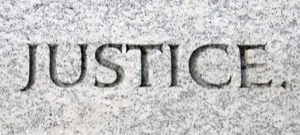Allegations of domestic violence in North Carolina, and how they are handled in district court, are unique in several ways. First and foremost, it is an unusual area of law, in that lawyers who traditionally focus on criminal defense like simple assault, assault on a female, and communicating threats work within the system to resolve cases. And yet, so do other attorneys who focus on family law and legal issues involving separation, divorce, child support, and equitable distribution.
Interestingly enough, the term “domestic violence” is found with the North Carolina marriage laws under N.C.G.S. Chapter 50B. And yet, many if not most aspects of domestic violence are criminal offenses in North Carolina, subject to prosecution of misdemeanor or felony charges, depending on what took place.
There is an important interplay between criminal court and civil court. Chapter 14 of the North Carolina General Statutes is referenced as “Criminal Laws.” Therein lies what constitutes violations of the criminal statutes, and the specific punishments if found guilty. To be clear, an “assault” and an “assault and battery” are the same, irrespective of the personal relationship between the alleged victim and the criminal defendant.
![law]()
The criminal laws in North Carolina generally do not delineate or distinguish between the parties’ interpersonal relationships in determining guilt or innocence. Jurors do not find “Guilty of Assault on Female: Wife” or “Not Guilty Communicating Threats: Boyfriend.”
Assault on a Female, and what constitutes the criminal charges, is the same whether the victim is a family member or complete stranger. Injury to Personal Property does not consider the existence of a dating relationship or child in common. Put simply, criminal charges are criminal charges.
That is not to say that Courts (Judges), prosecutors, and defense attorneys do not consider the nature and circumstances of what led up to criminal charges, especially when reviewing the terms and conditions of release (bond), the evidence presented at trial, and when appropriate, sentencing factors involving probation, supervised probation, jail sentences, drug treatment, mental health assessments, fines and costs.
Indeed, if found guilty of criminal charges in North Carolina, one should reasonably expect to be ordered by the Court, as part of the Judgment, to refrain from further acts of violence. Defense lawyers are used to hearing the Court order the Defendant to “not violate any law of the State of North Carolina, nor threaten, assault, or contact the victim,” in addition to other terms consistent with a suspended sentence.
People facing allegations of felony criminal charges involving domestic violence, such as Assault by Strangulation or Assault Inflicting Serious Bodily Injury, are subject to harsh sentencing provisions under the NC Sentencing Guidelines.
Chapter 50. Divorce and Alimony. Article 1. Divorce, Alimony, and Child Support, Generally.“Domestic Violence” in North Carolina is specifically described in the North Carolina Marriage Laws (NC family laws), specifically under Chapter 50B in the General Statutes, which is read:
Chapter 50B.
Domestic Violence.
§ 50B-1. Domestic violence; definition.
- Domestic violence means the commission of one or more of the following acts upon an aggrieved party. . .
In criminal court, the “aggrieved party” would be the victim, or a child they seek to protect. In civil court, which is where “no contact orders” pursuant to Chapter 50B are handled, Carolina Domestic Violence Lawyers represent either the Plaintiff who files a Complaint and Motion for Domestic Violence Protective Order, or the Defendant to the lawsuit. (The person facing allegations in criminal court or civil court is called the Defendant).
Again, the allegations in a civil lawsuit seeking protection via a Court Order known as a “50B” or “DVPO” may also constitute evidence in a criminal trial. In criminal court, the Defendant can “take the 5th” which means they cannot be compelled to give evidence against themselves.
That is not true in civil court. The Defendant in a Complaint for DVPO in North Carolina is often called by the Plaintiff or the attorney for the Plaintiff seeking protection under Chapter 50B of the North Carolina divorce laws. While they may technically refuse to provide testimony, their failure to testify may be used against the Defendant. Indeed, evidence provided by the Defendant in civil court is under oath or affirmation.
What the Defendant says during a civil trial for a Motion for 50B is recorded. A transcript may be often be obtained and therefore used during a criminal trial for the related, although technically separate criminal court proceedings for misdemeanor or felony charges in North Carolina.
And just like criminal charges, findings associated with a civil action for a protective order or DVPO may substantially impact future rulings on family law legal issues on child custody, child support, post-separation support, issues involving separation and divorce under the North Carolina divorce laws, and other legal issues in Family Court.
While grounds for divorce in NC are not technically required, in that many filings are no fault divorce NC, a Charlotte divorce lawyer would necessarily want to consider whether a protective order is appropriate given the fact pattern, and whether the protection order may serve as grounds for emergency relief, post-separation support, and child support in North Carolina.
North Carolina Marriage Laws: Bill Powers Charlotte Divorce Lawyer and Charlotte Violence Attorney Bill Powers is a Board-Certified Criminal Defense Specialist by the NBTA National Board of Trial Advocacy/NBLSC National Board of Legal Specialty Certification. He is also a Charlotte Divorce Lawyer with substantial experience providing legal representation in legal issues involving domestic violence protective orders in both civil court and criminal court.
Call Bill Powers NOW at 704-342-4357
You may also email Bill directly: Bill@342HELP.com

 Powers Law Firm PA Home
Powers Law Firm PA Home















